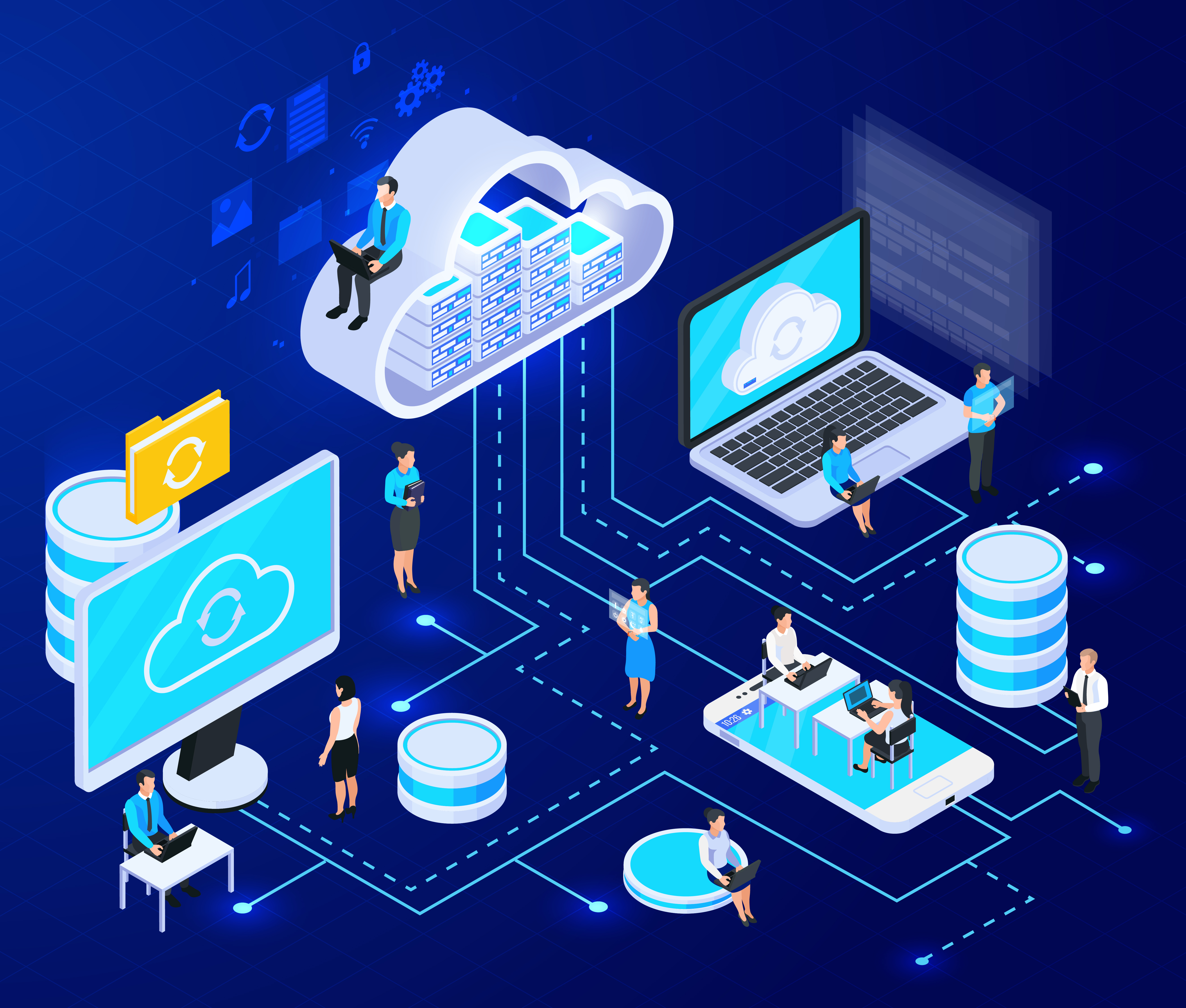The Cloud Is Just Someone Else's Computer: Here's How It Works

If you've ever heard someone say, "The cloud is just someone else's computer," you may have laughed. But what does it actually mean? While the statement is technically correct, the cloud is far more than a collection of computers. It's a significant shift in how we store, analyze, and retrieve data. Let us break it out in simple terms.
What Is the Cloud, Really?#
The cloud is a huge network of computers, servers, and storage devices linked via the internet. Instead of running software or storing data on your own device, you use the internet to gain access to sophisticated hardware and software owned by others.
For example:
- When you upload photos to Google Drive, they're stored on Google's servers.
- When you binge-watch your favorite show on Netflix, the video streams from servers in a data center somewhere in the world.
How Does the Cloud Work?#
At its core, the cloud is built on a few key concepts:
Data Centers#
These are large facilities filled with servers. Companies like Amazon Web Services (AWS), Google Cloud, and Microsoft Azure own massive data centers worldwide. Each data center is designed to store and process data efficiently, with:
- Redundant power supplies (so they don't shut down).
- Advanced cooling systems (to keep servers from overheating).
- High-speed internet connections.
Virtualization#
Consider a single physical server hosting many "virtual servers." Virtualization enables a single computer to act as many, sharing resources more efficiently. This is how cloud providers optimize their hardware.
The Internet#
The internet is the highway that connects your device to the cloud. When you upload a file to a cloud service, it travels via this highway to a server in a data center.
Scalability#
One of the cloud's superpowers is its flexibility to expand or contract as needed. Need more storage? The cloud may allocate it immediately. Are you expecting a rise in traffic? The cloud can deploy additional servers to manage the strain.
Types of Cloud Services#
The cloud is more than just one thing; it is a set of services that simplify our lives. Let us break it down:
1. Storage as a Service#
Think Google Drive, Dropbox, or iCloud. These services allow you to save files on the cloud and access them from anywhere.
2. Software as a Service (SaaS)#
Rather than installing software on your computer, you can access it over the internet. Examples include Gmail, Slack, and Zoom.
3. Infrastructure as a Service (IaaS)#
This allows developers and enterprises to rent virtual computers, storage, and networks. Providers like AWS, Microsoft Azure, and Google Cloud handle the hardware, so you don't have to.
4. Platform as a Service (PaaS)#
PaaS is designed for developers that wish to create and deploy apps without worrying about the underlying infrastructure. Examples include Heroku and Google App Engine.
Why Do People Use the Cloud?#
- Convenience: Access your files and apps from anywhere—your phone, laptop, or tablet.
- Cost Savings: Avoid buying expensive hardware. Pay only for what you use.
- Scalability: Easily handle growing demands. Learn more about how scalability works on our cloud platform.
- Collaboration: Tools like Google Docs let multiple people work on the same document in real time.
- Reliability: Cloud services employ redundancy to store your data in numerous places, ensuring that your files are safe even if a server fails.
Common Questions About the Cloud#
Is the Cloud Secure?#
Yes and No. Cloud companies invest extensively on security, including encryption, firewalls, and continuous monitoring. However, users must also exercise caution:
- Create strong passwords.
- Enable two-factor authentication.
- Do not share sensitive data unless it is encrypted.
What Happens If the Internet Goes Down?#
If you can't connect to the internet, you can't access the cloud. Some services, like Google Docs' offline mode, offer offline options.
Who Owns My Data in the Cloud?#
This depends on the service's terms of service. Most trustworthy companies will only utilize your data to perform the service. Check their privacy policies for more details.
The Cloud in Everyday Life#
Personal Use#
- Photos: Upload to Google Photos or iCloud to free up space on your phone.
- Music: Stream from Spotify or Apple Music.
- Backup: Use services like Backblaze to keep your data safe.
Business Use#
- E-Commerce: Platforms like Shopify use cloud infrastructure to run online stores.
- Video Conferencing: Zoom uses the cloud to connect people globally.
- Big Data: Companies such as Netflix analyze vast quantities of data in the cloud to recommend what you should watch next.
Why Is the Cloud "Someone Else's Computer"?#
At the end of the day, the cloud is comprised of physical servers owned and maintained by businesses. When you store data on the cloud, you are effectively renting space on their machines. However, it is not just any computer; it is a secure, scalable, and always-available system meant to simplify your life.
Closing Thoughts#
The cloud powers most of our internet activities, frequently without our knowledge. The cloud has changed the way we engage with technology, from streaming your favorite TV to working together on a project. And, while it's "someone else's computer," it's always there to assist—secure, expandable, and connected to you wherever you are.
Learn how Nife's cloud platform can simplify your deployments, scale globally, and enhance performance.